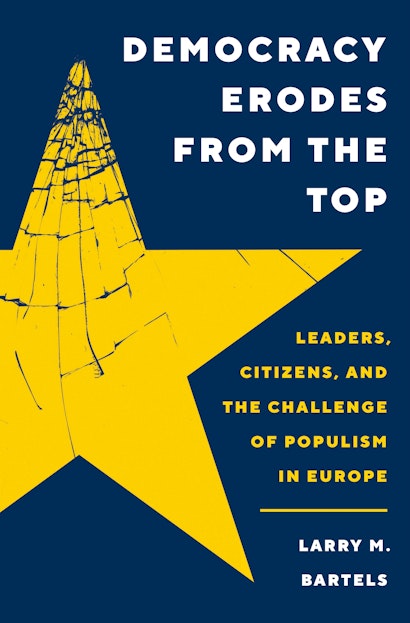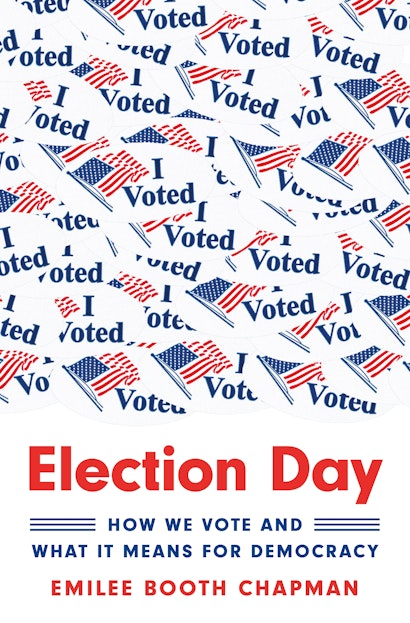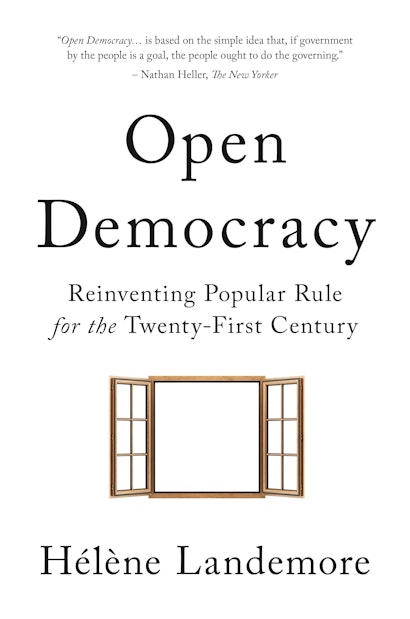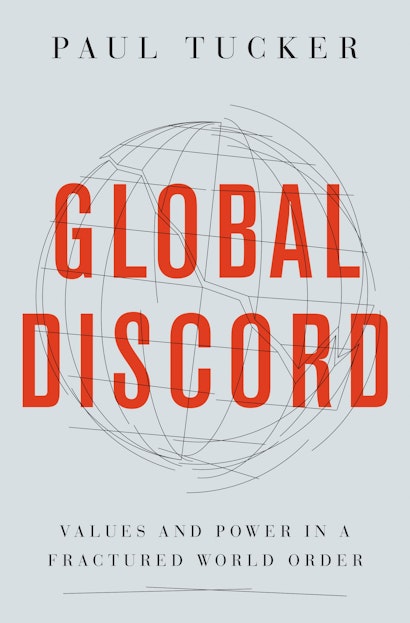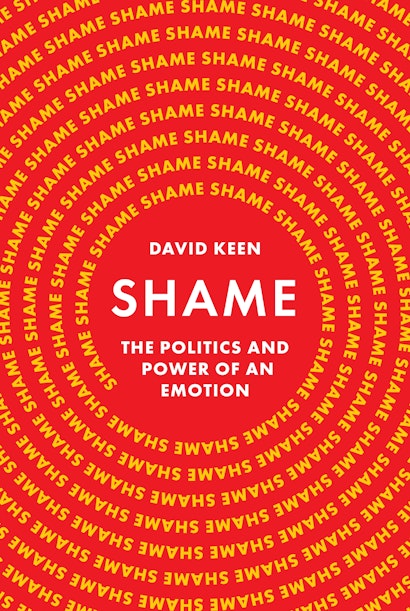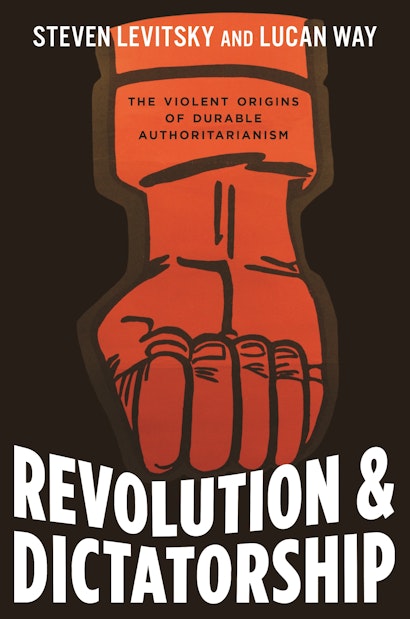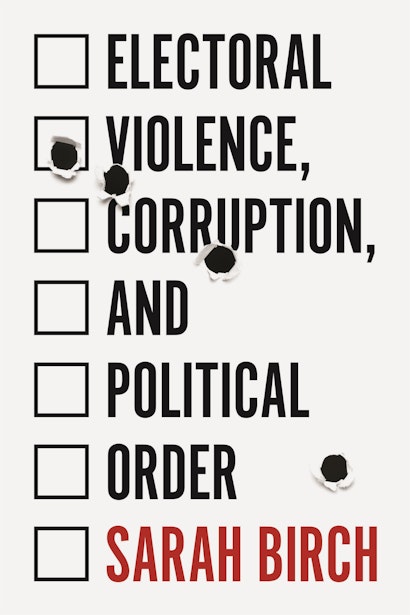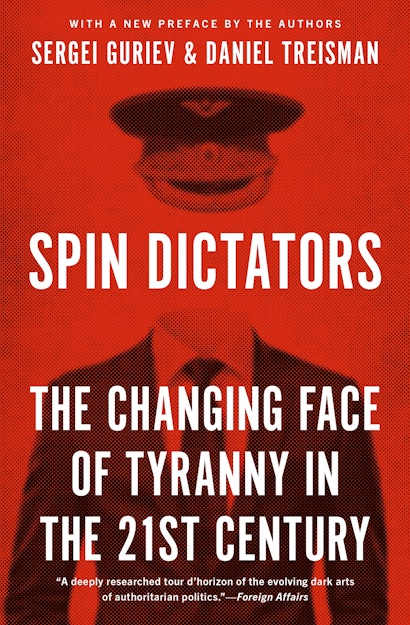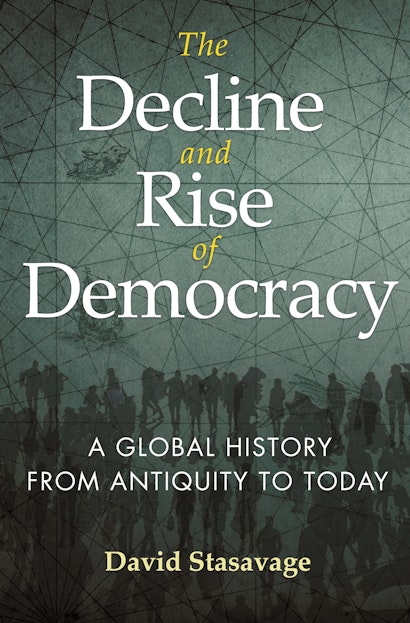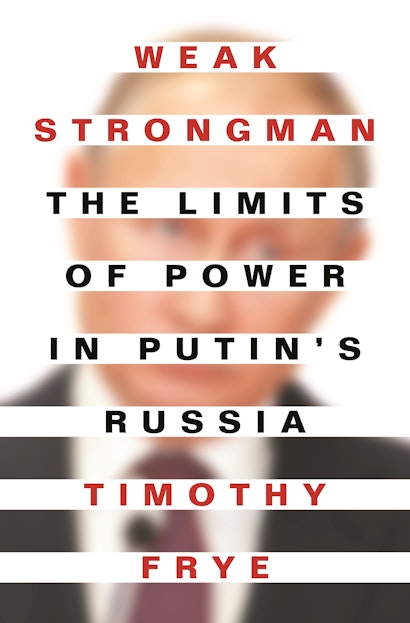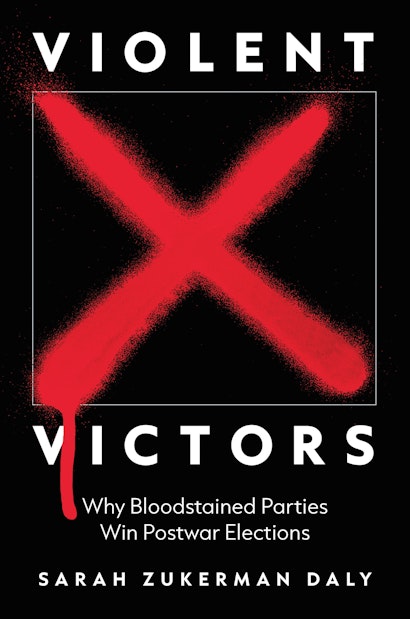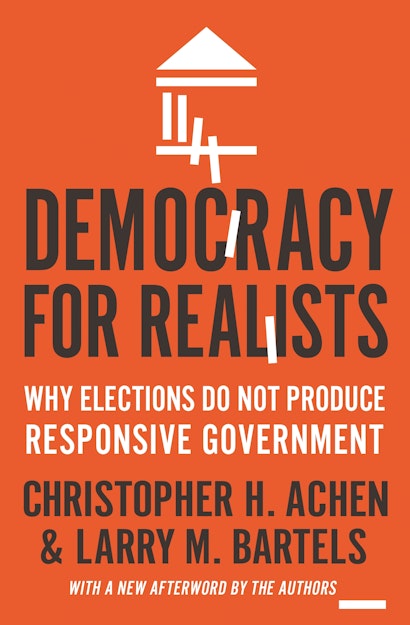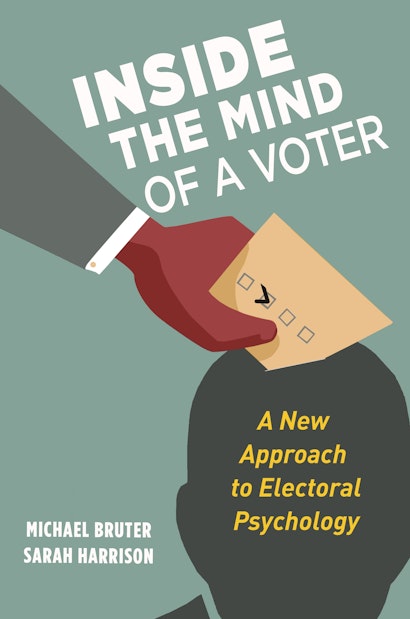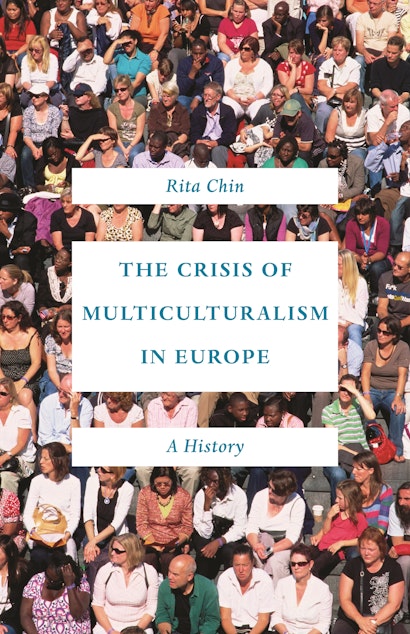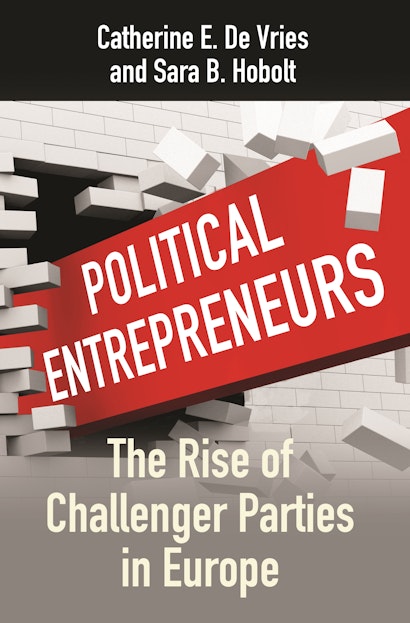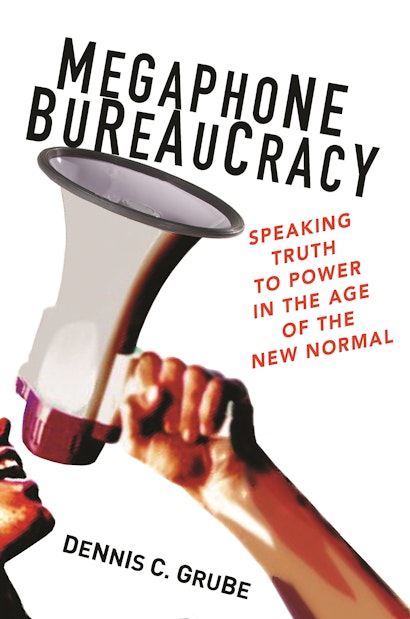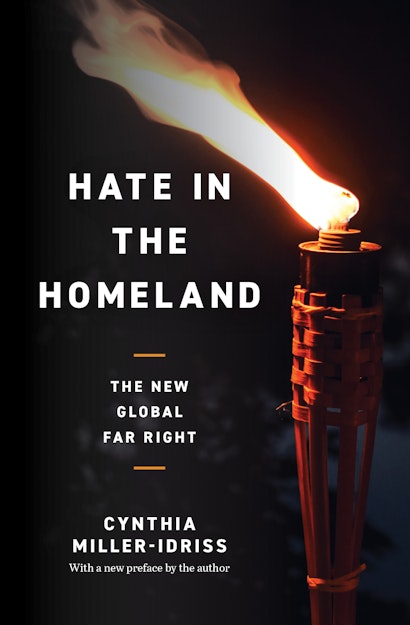2024 is a momentous year for global elections, with high-stakes, historic elections in over 50 countries. Seeking clarity on voting worldwide, and the political and social factors at play? This reading list can help.
A seeming explosion of support for right-wing populist parties has triggered widespread fears that liberal democracy is facing its worst crisis since the 1930s. Democracy Erodes from the Top reveals that the real crisis stems not from an increasingly populist public but from political leaders who exploit or mismanage the chronic vulnerabilities of democracy.
Voting is only one of the many ways that citizens can participate in public decision making, so why does it occupy such a central place in the democratic imagination? In Election Day, political theorist Emilee Booth Chapman provides an original answer to that question, showing precisely what is so special about how we vote in today鈥檚 democracies. By presenting a holistic account of popular voting practices and where they fit into complex democratic systems, she defends popular attitudes toward voting against radical critics and offers much-needed guidance for voting reform.
To the ancient Greeks, democracy meant gathering in public and debating laws set by a randomly selected assembly of several hundred citizens. To the Icelandic Vikings, democracy meant meeting every summer in a field to discuss issues until consensus was reached. Our contemporary representative democracies are very different. Modern parliaments are gated and guarded, and it seems as if only certain people鈥攚ith the right suit, accent, wealth, and connections鈥攁re welcome. Diagnosing what is wrong with representative government and aiming to recover some of the lost openness of ancient democracies, Open Democracy presents a new paradigm of democracy in which power is genuinely accessible to ordinary citizens.
Can the international economic and legal system survive today鈥檚 fractured geopolitics? Democracies are facing a drawn-out contest with authoritarian states that is entangling much of public policy with global security issues. In Global Discord, Paul Tucker lays out principles for a sustainable system of international cooperation, showing how democracies can deal with China and other illiberal states without sacrificing their deepest political values. Drawing on three decades as a central banker and regulator, Tucker applies these principles to the international monetary order, including the role of the U.S. dollar, trade and investment regimes, and the financial system.
In Shame, David Keen explores the function of modern shaming, paying particular attention to how shame is instrumentalized and weaponized. Keen points out that there is usually someone who offers an escape from shame鈥攁nd that many of those who make this offer have been piling on shame in the first place. Self-interested manipulations of shame, Keen argues, are central to understanding phenomena as wide-ranging as consumerism, violent crime, populist politics, and even war and genocide. Shame is political as well as personal. To break out of our current cycle of shame and shaming, and to understand the harm that shame can do, we must recognize the ways that shame is being made to serve political and economic purposes.
In The Politics of Language, David Beaver and Jason Stanley present a radical new approach to the theory of meaning, offering an account of communication in which political and social identity, affect, and shared practices play as important a role as information. This new view of language, they argue, has dramatic consequences for free speech, democracy, and a range of other areas in which speech plays a central role.
Revolution and Dictatorship explores why dictatorships born of social revolution鈥攕uch as those in China, Cuba, Iran, the Soviet Union, and Vietnam鈥攁re extraordinarily durable, even in the face of economic crisis, large-scale policy failure, mass discontent, and intense external pressure. Few other modern autocracies have survived in the face of such extreme challenges. Drawing on comparative historical analysis, Steven Levitsky and Lucan Way argue that radical efforts to transform the social and geopolitical order trigger intense counterrevolutionary conflict, which initially threatens regime survival, but ultimately fosters the unity and state-building that supports authoritarianism.
Throughout their history, political elections have been threatened by conflict, and the use of force has in the past several decades been an integral part of electoral processes in a significant number of contemporary states. However, the study of elections has yet to produce a comprehensive account of electoral violence. Drawing on cross-national data sets together with fourteen detailed case studies from around the world, Electoral Violence, Corruption, and Political Order offers a global comparative analysis of violent electoral practices since the Second World War.
Offering incisive portraits of today鈥檚 authoritarian leaders, Spin Dictators explains some of the great political puzzles of our time鈥攆rom how dictators can survive in an age of growing modernity to the disturbing convergence and mutual sympathy between dictators and populists like Donald Trump.
Historical accounts of democracy鈥檚 rise tend to focus on ancient Greece and pre-Renaissance Europe. The Decline and Rise of Democracy draws from global evidence to show that the story is much richer鈥攄emocratic practices were present in many places, at many other times, from the Americas before European conquest, to ancient Mesopotamia, to precolonial Africa. Delving into the prevalence of early democracy throughout the world, David Stasavage makes the case that understanding how and where these democracies flourished鈥攁nd when and why they declined鈥攃an provide crucial information not just about the history of governance, but also about the ways modern democracies work and where they could manifest in the future.
Media and public discussion tends to understand Russian politics as a direct reflection of Vladimir Putin鈥檚 seeming omnipotence or Russia鈥檚 unique history and culture. Yet Russia is remarkably similar to other autocracies鈥攁nd recognizing this illuminates the inherent limits to Putin鈥檚 power. Weak Strongman challenges the conventional wisdom about Putin鈥檚 Russia, highlighting the difficult trade-offs that confront the Kremlin on issues ranging from election fraud and repression to propaganda and foreign policy.
One of the great puzzles of electoral politics is how parties that commit mass atrocities in war often win the support of victimized populations to establish the postwar political order. Violent Victors traces how parties derived from violent, wartime belligerents successfully campaign as the best providers of future societal peace, attracting votes not just from their core supporters but oftentimes also from the very people they targeted in war.
Democracy for Realists assails the romantic folk-theory at the heart of contemporary thinking about democratic politics and government, and offers a provocative alternative view grounded in the actual human nature of democratic citizens. Christopher Achen and Larry Bartels deploy a wealth of social-scientific evidence, including ingenious original analyses of topics ranging from abortion politics and budget deficits to the Great Depression and shark attacks, to show that the familiar ideal of thoughtful citizens steering the ship of state from the voting booth is fundamentally misguided.
Could understanding whether elections make people happy and bring them closure matter more than who they vote for? What if people did not vote for what they want but for what they believe is right based on roles they implicitly assume? Do elections make people cry? This book invites readers on a unique journey inside the mind of a voter using unprecedented data from the United States, the United Kingdom, Germany, France, South Africa, and Georgia throughout a period when the world evolved from the centrist dominance of Obama and Mandela to the shock victories of Brexit and Trump.
In 2010, the leaders of Germany, Britain, and France each declared that multiculturalism had failed in their countries. Over the past decade, a growing consensus in Europe has voiced similar decrees. But what do these ominous proclamations, from across the political spectrum, mean? Looking at the touchstones of European multiculturalism, from the urgent need for laborers after World War II to the question of French girls wearing headscarves to school, The Crisis of Multiculturalism in Europe examines the historical development of multiculturalism on the Continent.
Challenger parties are on the rise in Europe, exemplified by the likes of Podemos in Spain, the National Rally in France, the Alternative for Germany, or the Brexit Party in Great Britain. Like disruptive entrepreneurs, these parties offer new policies and defy the dominance of established party brands. In the face of these challenges and a more volatile electorate, mainstream parties are losing their grip on power. In this book, Catherine De Vries and Sara Hobolt explore why some challenger parties are so successful and what mainstream parties can do to confront these political entrepreneurs.
Once relegated to the anonymous back rooms of democratic debate, our bureaucratic leaders are increasingly having to govern under the scrutiny of a 24-hour news cycle, hyperpartisan political oversight, and a restless populace that is increasingly distrustful of the people who govern them. Megaphone Bureaucracy reveals how today鈥檚 civil servants are finding a voice of their own as they join elected politicians on the public stage and jockey for advantage in the persuasion game of modern governance.
Hate crimes. Misinformation and conspiracy theories. Foiled white-supremacist plots. The signs of growing far-right extremism are all around us, and communities across America and around the globe are struggling to understand how so many people are being radicalized and why they are increasingly attracted to violent movements. Hate in the Homeland shows how tomorrow鈥檚 far-right nationalists are being recruited in surprising places, from college campuses and mixed martial arts gyms to clothing stores, online gaming chat rooms, and YouTube cooking channels.

